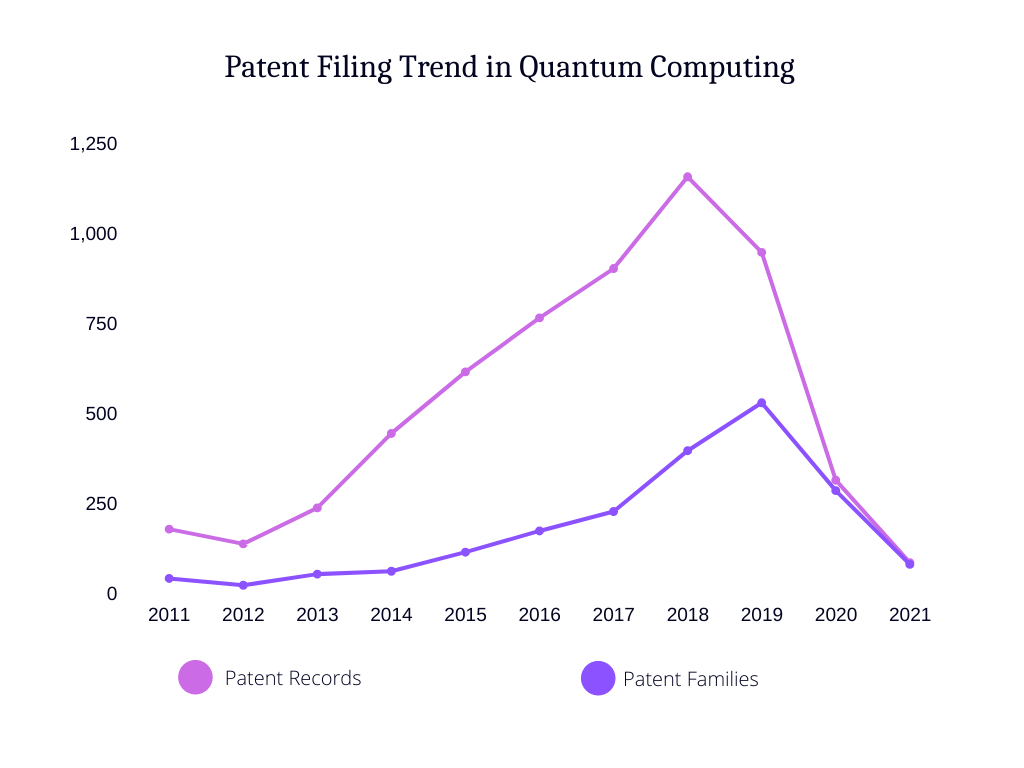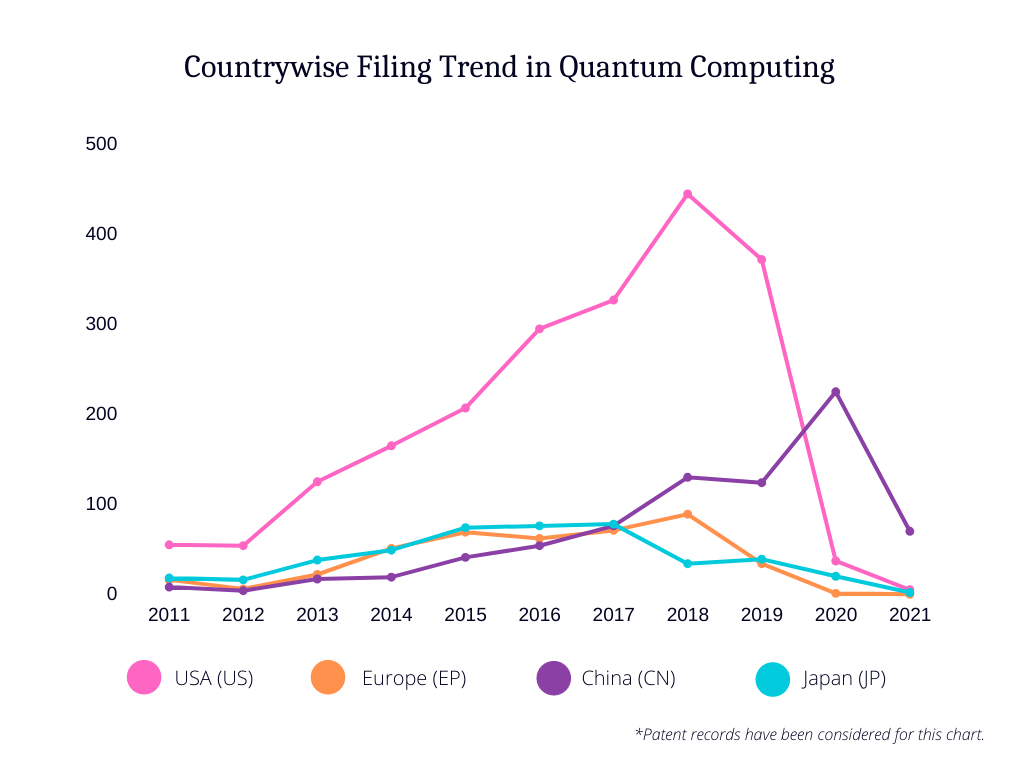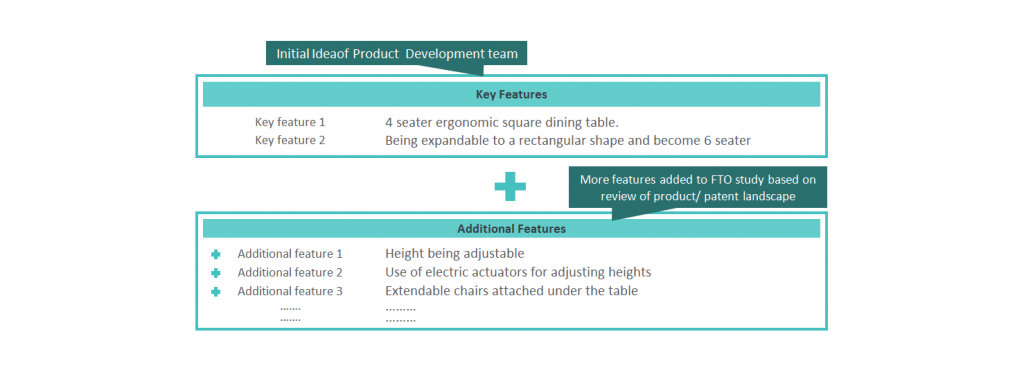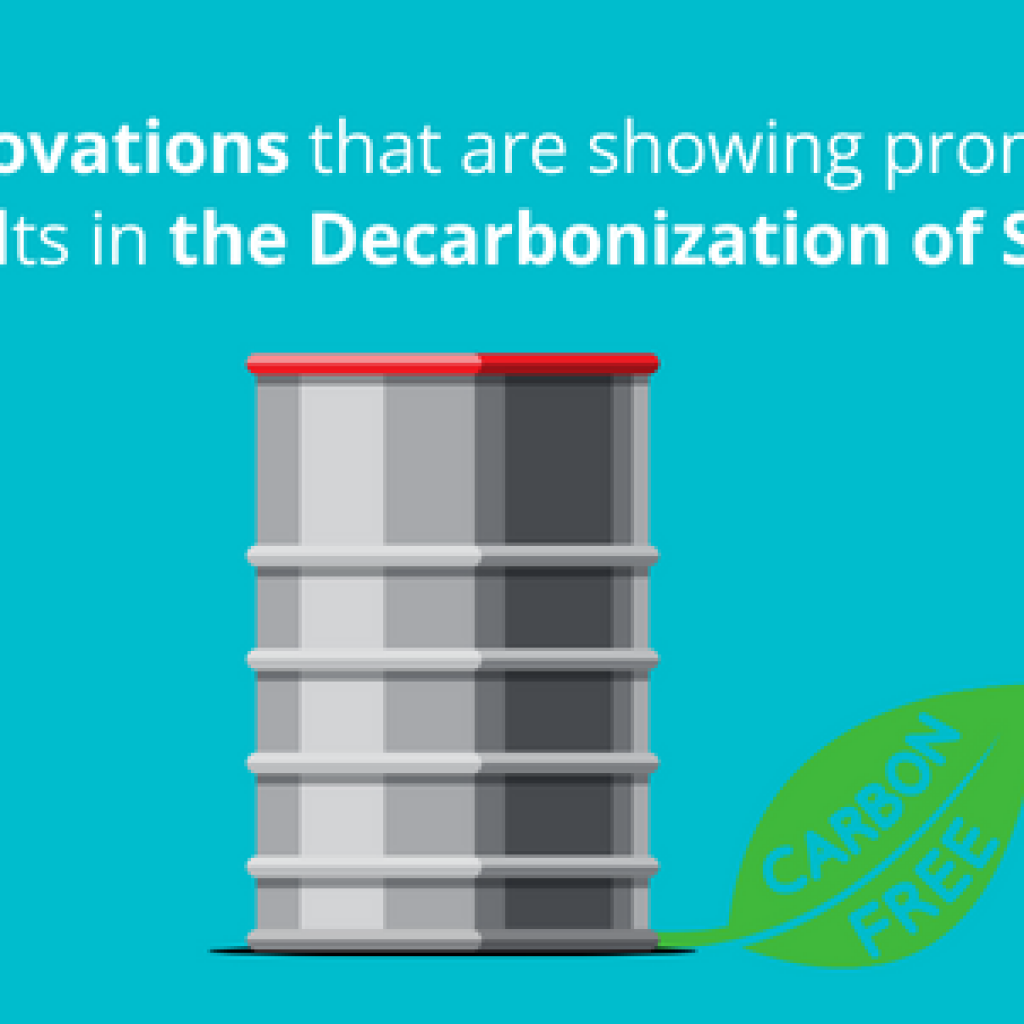“Simulating the behavior of 100 billion neurons of the human brain is not feasible by classical computers but quantum machine learning promises to fulfill that requirement.”
Quantum computing was initially proposed in the 1980s to get better computer modeling of the behavior of very tiny (quantum) physical systems. Different from the classic computing where bits are either ‘1’ or ‘0’, in a quantum state/ computing they can be ‘1’ and ‘0’. That means, they can enable to find all possible answers to a problem at once.
To give you an example, to find the below numbers, a classic computer will check every possible combination one by one.

But in quantum computers, due to superposition, the qubits are always in 0 and 1 so they can find the combination in seconds.

Source: Medium
Interesting right? But here’s a catch, qubits (those things that are somewhere between ‘1’ and ‘0’) are very unstable. Scientists building quantum computers have to isolate them from any kind of electromagnetic disruption, including the blackbody radiation from stuff around them (that’s the infrared light that humans give off or the orange glow of hot metal): which means no magnets anywhere near them, and they have to be cooled to near absolute 0.
It’s like calibrating a nuclear explosion to destroy one house, without destroying anything else.
So, is Quantum Computing just hype, or is it the homerun researchers are claiming it to be?
Well, all I can say is along with many promising possibilities, Quantum Computing has a lot of chance for errors too. The research for Quantum computing tech is still in its nascent stage and we can expect life-changing impacts from the tech for sure. So today, let’s have a look at how far Quantum Computing has reached.
In this article, we will be covering industries where Quantum Computing has found its applications, its market growth, and most importantly, the challenges that are yet to be solved to make Quantum Computing an integral part of the industries.
Our full report covers –
- Research trends of quantum computing
- Leading companies and prominent startups
- Top countries where research is being done
- The impact that quantum computing is having on other industries
Get your hands on a full report using the form below and uncover everything about the Quantum computing market and research.
“Quantum technologies are difficult to understand, but that will not stop the disruption this set of emerging technologies will bring in the next few years!”
― Kevin Coleman, Chief Strategist at ETENS

Source: IBM
Market Size and Growth
In 2021, the Global Quantum Computing Market was valued at $472 million. The market is anticipated to expand at a 30.2% CAGR from USD 472 million in 2021 to USD 1,765 million by 2026. The early utilization of quantum computing in the banking and finance industry is projected to boost the market’s worldwide expansion.
Global Quantum Computing Market during 2020-2026 ($Million)

Geographically, North America held the highest market share i.e., approximately 45% of the global quantum computing market. Whereas Europe and Asia-Pacific held approximately 38% and 12%.
Global Quantum Computing Market Share in 2020, by Region (%)

Now, let’s take a look at the driving factors of this growth in Quantum Computing.
Market Drivers
Rise in investments in quantum computing technology
Various government organizations in the worldwide space and military sectors have been spending heavily on the development of quantum computing technology to apply various optimization and simulation methods with quantum computers. Various governments across the globe are making considerable contributions to assist their research institutes’ development of quantum computing technologies.
China has made considerable investments in research and development linked to quantum computing technologies. The United States and Australian governments and those of the European Union are pushing ahead with quantum computing programs. In August 2017, the Commonwealth Bank (CBA) joined Telstra, the Federal Government, the New South Wales Government, and the University of New South Wales (UNSW) in a US $83-million partnership to build Australia’s first quantum computing business.
“As the technology is nascent, everyone is trying to capture it. As and when this technology is ready for deployment it becomes a high-value national asset with geopolitical consequences. Hence, it is envisioned as a transferable technology. We need to have significant efforts by the stakeholders especially the academia and research labs. European countries are already spending a lot in research for quantum technologies.”
Dr. B Krishna Murthy, Sr. Director (R&D in IT), Ministry of Electronics & Information Technology, Govt of India
Early adoption of quantum computing in the banking and finance industry
Quantum computing has gained popularity in the banking and finance services business, which focuses on accelerating trade activities, transactions, and data processing by orders of magnitude. Simulation is one of the most important possible uses of quantum computing.
Quantum computing aids in the discovery of a more effective and economical method of managing financial risks. When conventional computers are employed in financial institutions, the processing time and costs of high-quality solutions rise exponentially, but quantum computers perform fast processes at optimal prices, resulting in cost reductions and new income potential.
Increase in the number of strategic alliances and collaborations
Quantum computing technology is still in its infancy. To carry out quantum computing breakthroughs, developing practical applications, and for establishing a quantum workforce of the future, scalable quantum computers require devoted partners. Several companies, including Intel, Google, and IBM, have been cooperating with universities from across the world to do research and development on quantum computing technologies. In addition, IBM has launched several collaborations with companies and academic institutions to investigate the practical applications of this technology.
Increasing adoption of quantum technology for healthcare and defense sectors
In the age of personalized healthcare, which is based on genetics, individual physiology, and pharmacokinetics, the necessity to collect massive volumes of data and analyze it in a manner suitable for clinical application has been really pressing. Quantum computing is the most effective instrument for attaining this goal. Quantum computing enables the simulation of complicated molecular interactions at the atomic level. This is especially essential in medical research and medication development. The healthcare industry is driving considerable adoption of quantum computing due to the growing requirement for robust computing while addressing the challenges associated with identifying medicines to target specific diseases.
Market Challenges
Problems with stability and error correction
Physical qubits, which are prone to mistake, are now used in quantum computers. It is predicted that 1,000 physical qubits are needed to make a single logical qubit error-free, a goal that is yet to be achieved. Devices with up to 5,000 physical qubits have been developed till 2020. A commercially viable quantum computer, on the other hand, is projected to be a 200 logical qubit machine with 200,000 physical qubits.
The commercialization of quantum computers is a challenging task. Moreover, sustaining the quantum mechanical state of qubits for an extended length of time is very difficult because they are fragile and quickly disturbed by changes in ambient temperature, noise, and frequency. Furthermore, many blockchain-based systems rely on the elliptic curve digital signature method (ECDSA), which is not currently quantum-safe.
Technical and implementation restraints
Quantum computing engineering is still in its early stages. The technological hurdles of implementing quantum computing systems for real-time applications are many. Because every interaction with the environment collapses the state function, quantum computers are particularly sensitive to it.
The development of a physical universal computer that can be utilized for real-time applications is still speculative, and the precise contribution of quantum computing solutions to conventional computing methods is not yet known. These issues have created a schism between research laboratories, investment firms, and the corporate ecosystem, which is likely to harm the global quantum computing market’s growth.
Scarcity of highly trained workers
The worldwide quantum computing market has been hampered by a lack of educated or competent personnel and a lack of knowledge of quantum computing, which has led to a reluctance to adopt. Government investment and action, on the other hand, are anticipated to overcome this constraint.
Technical Challenges of Quantum Computing
Quantum computing is a novel and exciting technology that has the potential to produce exponentially powerful computations if a large-scale implementation can be developed. But building a large-scale quantum computer has several problems, including Fabrication, Verification, Architecture, and so on. Let’s take a look at them one by one.
Fabrication
Due to the fragility of quantum states, fabrication must be accurate, and bits must frequently function at extremely low temperatures. Major advancements in material science, material engineering, and fresh fabrication techniques are needed to produce large-scale systems. The inability to duplicate bits and the lack of measurement accuracy make it hard to test fabrication and traditionally provide error correction.
The tiny scale of the components and the accuracy with which they must be positioned in the system is perhaps the most evident problem in fabricating quantum computers. Because accurate quantum processes are already difficult, given a fabricated system with precise spacing and alignment, fluctuations should be minimal and, most likely, identified. Additionally, the usage of quantum processes to test components should be limited.
Verification
Verification is critical because highly reliable fabrication technology minimizes the quantity of error correction required. Quantum states may not be measured precisely, so verification is challenging. Quantum verification is especially difficult in regimes where comparing quantum devices to classical simulations is no longer viable.
Architecture
Architectural principles from conventional computer architecture, such as multiplexing and pipelining, can be used to construct a large-scale quantum computer. Quantum error correction is the single most important concept in developing a quantum architecture. Errors happen considerably more frequently in quantum computing than in classical computing, therefore error correction is the most important job for quantum architectures to master.
Taking separate quantum components and assembling them into a functional, large-scale quantum computer poses two major challenges. To begin, because quantum computing demands extremely low temperatures and classical circuits (needed for controlling quantum gates) are built for greater temperatures, the architecture must be modified to allow classical circuits to function at very low temperatures. Furthermore, because quantum operations are prone to mistakes and error correction circuits are vast, a dependable communication method is necessary.
This covers the basic spectra of technical challenges, and there are more. But we will refrain from sharing more about them here for the sake of brevity. The above challenges and more need to be overcome, and a lot of universities, academia, and companies are actively working to overcome these challenges and make quantum computing a reality. Let’s now look at the countries fueling the research in quantum computing.
Countries Fueling Research in Quantum Computing
In many regions of the world, quantum computing technologies are becoming increasingly powerful. The various countries investing in this technology include:
United States
In 2019, the US government launched the National Quantum Initiative, a bipartisan effort to lead the race in quantum communications, quantum computing, and quantum cryptography. The government has pledged $1.2 billion over the next five years to advance quantum computing.
In addition, the Department of Energy announced an extra $80 million for quantum research.
The White House Office of Science and Technology Policy, the National Science Foundation, and the Department of Energy announced a $1 billion fund, in 2020, to create 12 AI and quantum information science research labs around the country.
China
In its 14th five-year plan (2021-2025), China prioritized quantum technology.
In 2015, Alibaba established its quantum computing laboratory to produce a prototype 50-100 qubit quantum computer for public usage by 2030.
In 2016, the government began the ‘Quantum Experiments at Space Scale’ initiative, known as Micius, to conduct a variety of ground-to-space quantum communication experiments.
In 2017, as part of a major effort to expand this industry, Xi Jinping’s administration stated that a $10 billion national laboratory for quantum information sciences will be built.
In 2018, Baidu announced the establishment of a quantum computing institute, and the same year, Tencent opened the Tencent Quantum Lab in Shenzhen for scientific study in quantum computing.
China’s top quantum research organization revealed, in 2020, that they had developed ‘Jiuzhang’, a 53-qubit prototype quantum computer capable of detecting up to 76 photons.
Canada
Canada has spent over $1 billion on quantum computing over the previous decade. Furthermore, the country’s research skills, expanding public-private collaborations, and inventions are pushing the country’s quantum computing growth.
In a 2016 evaluation of innovation among G20 nations, Canada ranked fifth in the world for patent filings in quantum computing and telecommunications.
McKinsey placed Canada first in quantum computing science in 2019.
The Canadian government gave D-Wave Systems a $40 million fund in 2020 as part of a broader $100 million investment in quantum technology. McKinsey & Co. rated Canada fifth internationally in total yearly quantum science expenditures and first among G7 nations in per-capita quantum research spending in a recent review of global quantum research efforts published in The Economist.
In Budget 2021, the Canadian government committed $360 million in new financing for a National Quantum Strategy to strengthen Canada’s strength in quantum research and secure Canada’s worldwide leadership.
United Kingdom
The United Kingdom was the first government in Europe to unveil its quantum plan in 2013, investing €370 million over the first five years.
The government established a national quantum computing center in 2018 with the goal of designing, developing, and constructing a quantum computer.
The government invested £153 million on quantum technology development in 2019, increasing the total spending to £1 billion. In addition, the business sector contributed £200 million.
Furthermore, since its start in 2014, the UK’s National Quantum Technologies Program has received £1 billion (roughly US$1.27 billion) in funding. The government intends to raise R&D investment to 2.4% of GDP.
Germany
In terms of quantum computing investment, Germany is one of Europe’s leaders.
In 2018, the German government committed €650 million over four years for the development of a quantum computing market.
In 2021, IBM revealed one of Europe’s most powerful quantum computers in Germany, strengthening the country’s attempts to remain competitive in what is viewed as a crucial future technology.
Further, Angela Merkel, the German chancellor, announced a €2 billion innovation initiative for quantum technology, which involves the creation of two quantum computers.
France
In 2018, France established the ‘Quantonation’ investment fund, which is focused on funding quantum start-ups.
In 2021, the French government announced a €1.8 billion plan to strengthen research in quantum technologies, particularly quantum computers, over five years, increasing public investment in the field from €60 million to €200 million per year, placing France third in quantum funding behind China and the United States.
Russia
Quantum research in Russia is funded in several ways by both governmental and industry groups.
In 2020, the Russian government pledged a $790 million investment for the development of practical quantum computing technology.
In 2020, Rosatom, Russia’s national nuclear enterprise, established the National Quantum Laboratory, a government initiative aimed at developing a quantum computer by the end of 2024.
The government intends to establish a new National Quantum Laboratory to utilize worldwide best practices and resources from universities, research institutions, technology firms, and start-ups. Russia is in the process of accepting a five-year strategy for the development of quantum technologies as part of the Digital Economy National Program, named the Russian Quantum Technologies Roadmap.
A good way of finding the research threshold of a country is by analyzing the patents. So, let’s hop on to the patent Insights of Quantum Computing technology for more deets.
Patent Insights

The patent filing has been increasing since 2012 and 2018 and 2019 saw all time high. 2020 and 2021 filings were low most probably due to Covid-19.

In terms of patents, the US is in a clear lead in the last 10 years. China is following the US, but with a huge gap. While in 2020, the US filings decreased drastically, China seemed to file a record patents in the same year.
The patent race is just beginning. In the next two or three years, we could see a drastic change in the numbers.
Best Markets for Commercialization of Quantum Computing
Quantum computing is approaching a commercialization stage that can change the world. Several countries are competing to be the first to commercialize quantum computing technology. The various countries commercializing this technology include:
United States
The US government has been establishing 12 new research institutes with hundreds of millions of dollars in funding to advance artificial intelligence and quantum computing. The private sector is already investing billions of dollars in AI and quantum computing research on its own. The federal funding will increase such investments, allowing them to reach regions outside the scope of today’s commercialization plans.
- ColdQuanta commercialized quantum atomics, which it claims is the next wave of the information era. The company’s Quantum Core technology is based on ultra-cold atoms lowered to almost absolute zero; lasers manage and control the atoms with great accuracy.
- In 2016, IBM introduced the Quantum Experience allowing developers to perform algorithms and experiments on the company’s quantum processor and interact with individual qubits.
- AT&T stated in 2017 that it was collaborating with the California Institute of Technology to develop its quantum networking technology, which could help it provide more secure communications.
- According to Bloomberg, in 2017, Google made measures to encourage the development of commercial applications for its quantum computing technology, with the eventual goal of offering quantum cloud services.
- Earlier that year, IBM launched its commercialization efforts, releasing an API and SDK for public access to quantum computing via IBM Cloud.
- In 2020, Honeywell unveiled its first quantum computer with hopes to scale the system as well. The System Model H0 achieved a quantum volume of 64, double the measure of any other systems available at that time. After few months, the System Model H1 was 8X its performance in terms of quantum volume and became the first commercial quantum computer to measure 512.
- In 2021, Google stated that it expects to create a commercial quantum computer capable of doing large-scale operations without errors by the end of the decade. It disclosed its intentions at the Google I/O developer conference, making it one of the few companies in the world with clear launch dates for quantum computers.
Canada
In 2020, a group of Canada’s major quantum technology firms announced the formation of Quantum Industry Canada (QIC), an industry association whose purpose is to guarantee that Canadian quantum innovation and expertise translates into Canadian corporate success and economic prosperity.
The 24 founding members represent Canada’s most commercially ready quantum technologies, with applications ranging from quantum computing to quantum sensing to quantum communications to quantum-safe encryption.
D-Wave Systems, the first firm to market a quantum computing hardware system, is based in British Columbia. In 2020, a $40 million investment in D-Wave Systems was announced to improve the Canadian innovation ecosystem and promote the commercialization of quantum computing services. And they were first to do that.
The Canadian government has made significant investments in the infrastructure and resources required for quantum domination.
The Institute for Quantum Computing, the Perimeter Institute for Theoretical Physics, the Quantum NanoFab Facility, and the Quantum Valley Ideas Lab, all located in Waterloo, focused on diverse aspects of the quantum research life cycle, from R&D through new product commercialization.
Alberta is also establishing a provincial quantum network, Quantum Alberta, to bring together academics and businesses to promote the adoption and commercialization of quantum technology.
The Creative Destruction Lab (CDL), Toronto, estimates that by 2022, it will have generated more commercially viable, well-capitalized, revenue-generating quantum machine learning firms than the rest of the world combined.
United Kingdom
The UK government launched the National Quantum Computing Centre (NQCC) as part of its national program, a £93 million ($123 million) venture declared a few years ago to enhance the commercialization of quantum technologies as well as provide businesses and research institutions with connectivity to quantum computers as they are developed around the globe.
The United Kingdom government pledged a £153 million investment in attempts to commercialize quantum computing in 2019.
In 2020, the University of Strathclyde joined the UK’s largest industry-led quantum computing initiative to date. The University had joined DISCOVERY, a three-year, £10 million effort aimed at overcoming technological challenges to commercial quantum computing. Innovate UK funded the project as part of the UK Government’s Industrial Strategy Challenge Fund call for ‘Commercializing Quantum Technology: Technology Projects Round 1’.
In 2020, Rigetti UK announced that it will head a £10 million consortium to advance the commercialization of quantum computing in the United Kingdom. The three-year initiative is aimed towards developing the UK’s first quantum computer, and making it available to partners and consumers through the cloud, and seeking practical applications in machine learning, materials modeling, and finance. Oxford Instruments, the University of Edinburgh, quantum software start-up Phasecraft, and Standard Chartered Bank joined Rigetti.
The University of Birmingham’s UK Quantum Technology Hub Sensors and Timing seeks to develop a variety of quantum sensor and measurement technologies ready for commercialization by UK firms and teach people working in the UK quantum technology community.
The EPSRC Quantum Communications Hub is synergistic cooperation of 10 research-leading institutions, private sector businesses, and public sector organizations in a one-of-a-kind collaboration for research-led development and commercialization of quantum secure communications. This Hub’s work focuses on quantum key distribution (QKD), one of the most mature quantum technologies for the secure distribution of encryption keys, and one that is seen as particularly promising for early commercialization.
Another hub, QuantIC, the UK Quantum Technology Hub in Quantum Enhanced Imaging, is working on a remarkable range of quantum imaging technologies that its existing industry partners have assisted them in identifying as potentially commercially useful. According to a 2021 report, the UK’s first commercial quantum computer project is gathering speed in Abingdon, Oxfordshire, at the Oxford Instruments NanoScience facility.
China
China has published its economic strategy for the next several years, and among the most ambitious goals are some important advances in quantum technology – which, if accomplished, would firmly position the country as a leading quantum powerhouse.
In 2020, Baidu unveiled Paddle Quantum, an open-source machine learning toolkit aimed to assist data scientists in training and developing AI for quantum computing applications.
Qasky is commercializing the Chinese Academy of Sciences’ quantum cryptography research and developing quantum cryptography communication terminal equipment, network switching/routing equipment, core optoelectronic devices/modules, an opening experiment system, scientific instruments, network security control, and application software to deliver integrated solutions to quantum cryptography.
QuantumCTek Co., Ltd is a pioneer in the commercialization of quantum information technology (QIT), designing and producing QIT-enabled ICT security products, services, and solutions for telecom infrastructure, business networks, cloud computing, and Big Data technology. Government, financial, and energy sector entities have all used QuantumCTek’s products.
QuDoor has been engaged in the development and completion of various quantum information technology feats, including the first commercial quantum communication system (2003), the first dedicated waveform generator for quantum computing (2007), the first to achieve ion trapping on the ion trap chip (2012), the first quantum computing measurement and control system (2015), and China’s first trapping system with ion-phonon-photon compound entanglement function (2018).
Conclusion
Considering the positive market growth and investment, Quantum computing would surely shine a light on the world with its amazing capabilities.
The research has been going on for some time now. But in recent years, it has picked up speed as now technology companies are also taking part in the research along with research institutes and universities. The availability and skills needed in the quantum workforce are being challenged from both the demand and supply sides. The demand will only grow now that quantum computing is moving from academia to business applications.
And as we just read, countries are becoming aware of its prowess, their investment in this tech would only grow bigger.
Talking about quantum computing prowess, in the next article, we have discussed the industries in which quantum computing would make an impact.
Authored by: Vipin Singh, Market Research.











